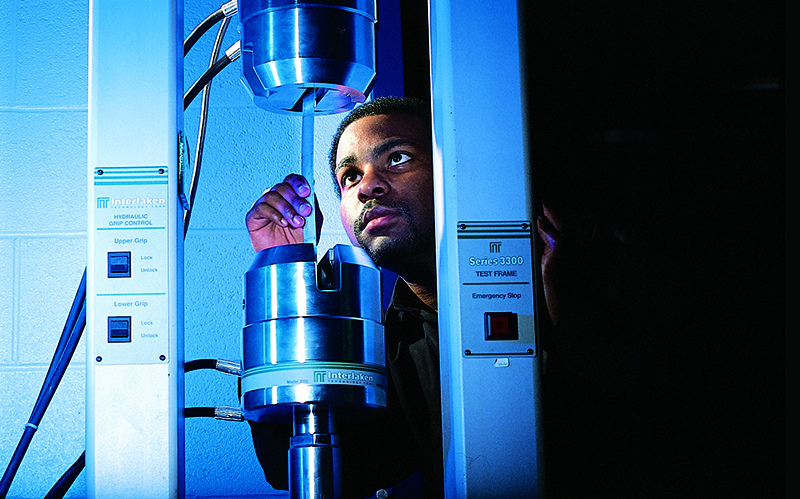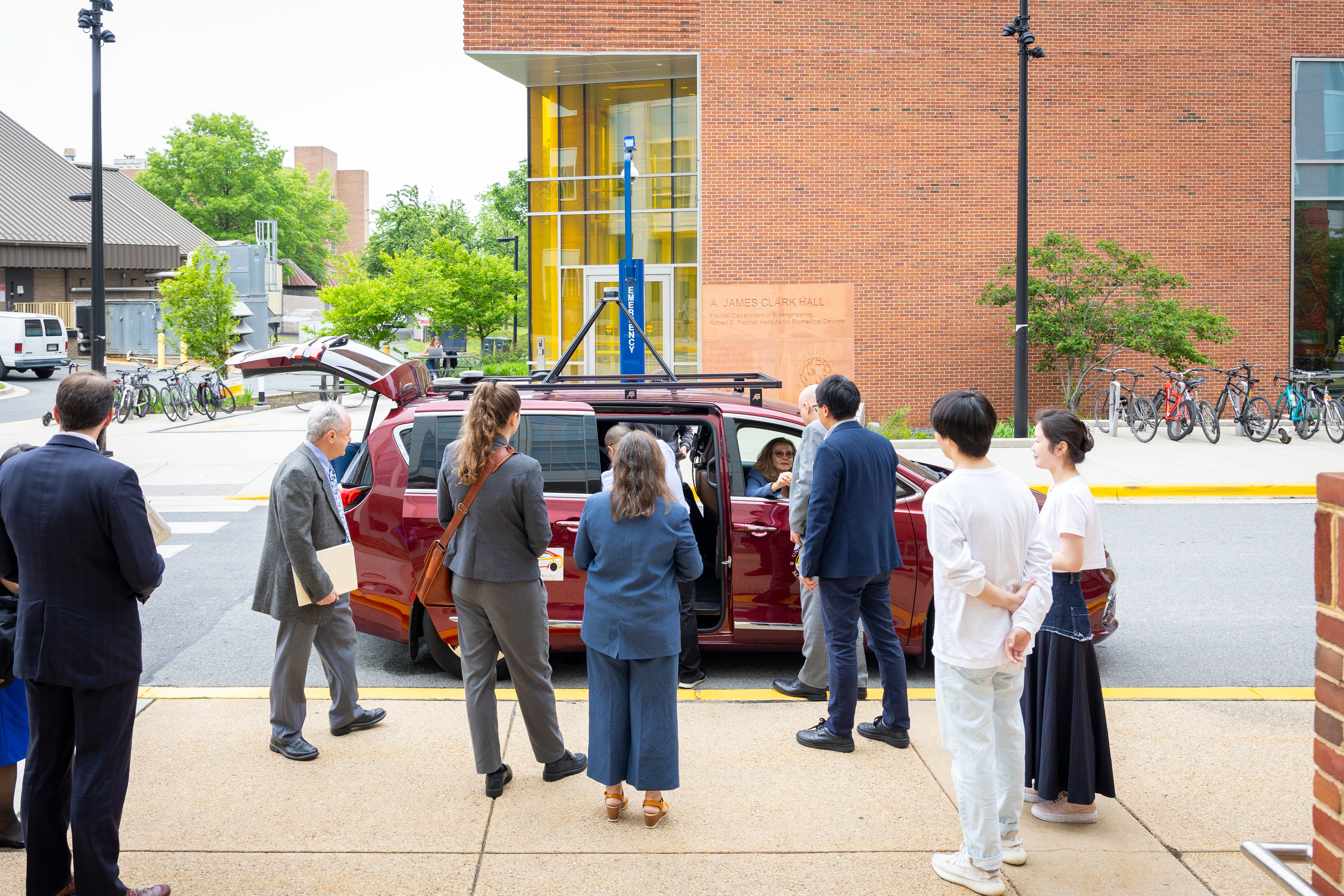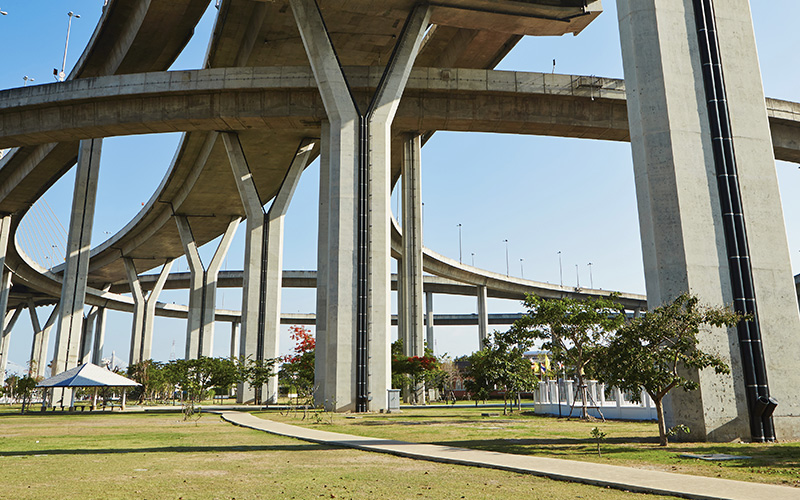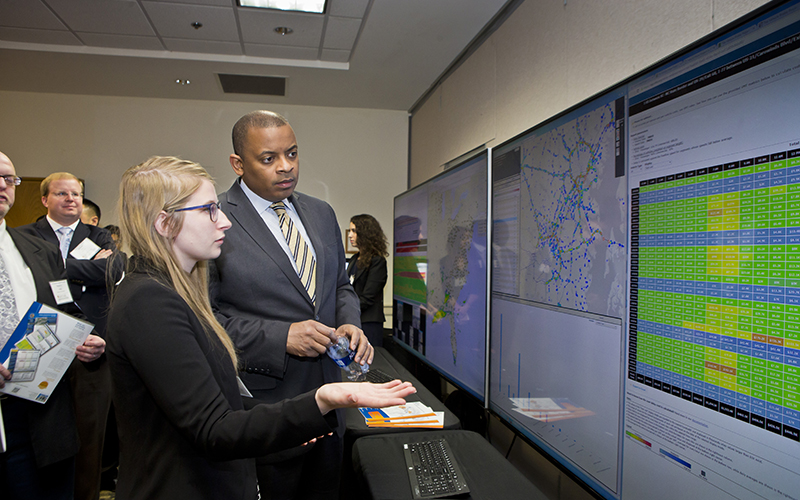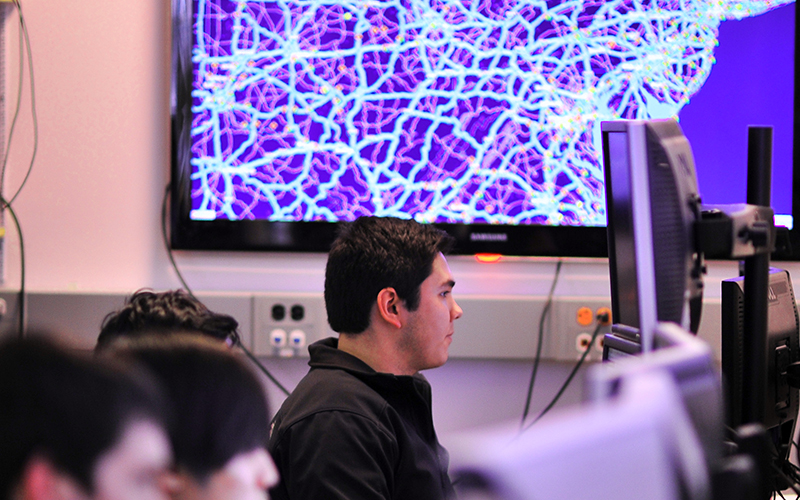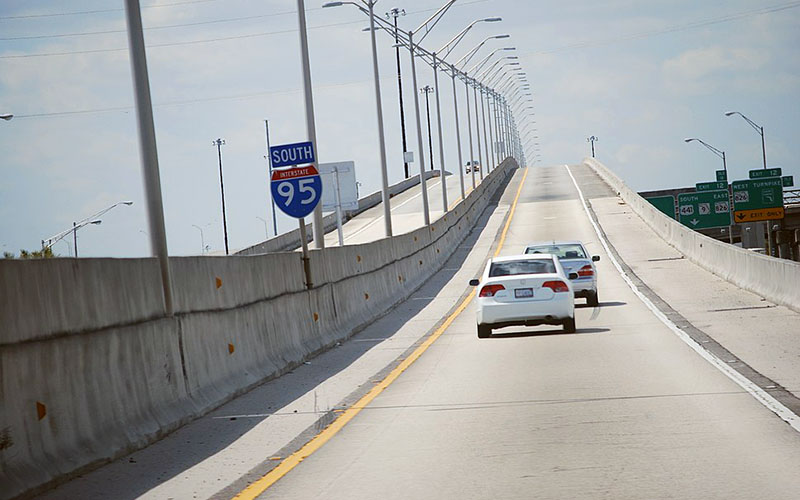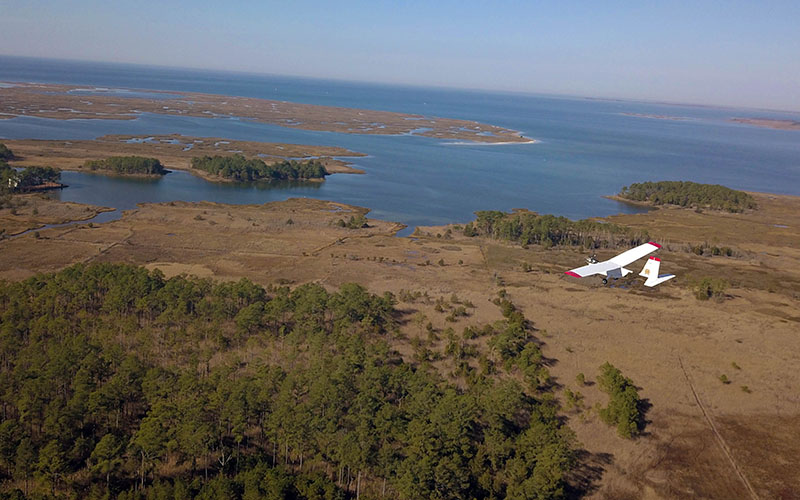Institutes, Centers & Labs
Centers
Bridge Engineering Software & Technology Center
The Bridge Engineering Software and Technology Center was established in 1986 to develop bridge-related technology through onsite testing and laboratory projects.
Center for Advanced Life Cycle Engineering
The Center for Advanced Life Cycle Engineering is recognized as a founder and driving force behind the development and implementation of physics-of-failure approaches to reliability as well as a world leader in accelerated testing, electronic parts selection and management, and supply-chain management. The center, which houses over 100 faculty, staff, and students, is also at the forefront of international standards development for critical electronic systems.
Center for Advanced Study of Communities & Information
The Center for the Advanced Study of Communities and Information is a multidisciplinary research network facilitating research and education that advances our understanding of the technology, information, and organizational approaches needed to realize the potential of 21st century communities.
Center for Advanced Transportation Technology
The Center for Advanced Transportation Technology (CATT) at the University of Maryland was created to respond to the significant changes brought about by the increasing use of advanced technologies in the transportation field. CATT provides a bridge between the intelligent transportation systems community, the information technology community, and other disciplines essential to the successful application of ITS.
Center for Geospatial Information Science
The Center for Geospatial Information Science is focused on supporting the development of next-generation tools for use with geographic information systems, geospatial modeling and simulation, geocomputing, and visualization to address a broad range of applications, including public health, transportation, urban dynamics, and atmospheric science.
Center for Global Sustainability
The Center for Global Sustainability informs global, national, and local discussions on climate, energy, economic development, and sustainability. Its location in Washington, D.C., research network, international policy expertise, and connections with key countries ensure that research has immediate and significant impact on global and national policy processes.
Center for Health and Risk Communication
The Center for Health and Risk Communication leverages expertise in communication, mass media, public relations, persuasion and social influence, interpersonal communication, and intercultural communication to understand the processes and effects related to issues such as food safety and nutrition, health risks, environmental hazards, and disasters.
CMMM
The mission of the Center for MultiModal Mobility (CMMM) is to conduct research related to the statutory research priority area “Improving the Mobility of People and Goods.”
CMMM focuses on three strategic goals identified by USDOT, namely: economic strength and global competitiveness, and climate and sustainability.
Maryland Transportation Technology Transfer Center
The Maryland Transportation Technology Transfer Center works to foster a safe, efficient, and environmentally sound surface transportation system by improving skills and increasing knowledge of the transportation workforce and decision makers.
National Center for Smart Growth Research and Education
The National Center for Smart Growth Research and Education is a non-partisan center for research and leadership training on smart growth and related land use issues in Maryland, in metropolitan regions around the nation, and in Asia and Europe.
National Transportation Center
The National Transportation Center at the University of Maryland is one of the five national centers selected in a nationwide competition and the only one with a focus on the U.S. Department of Transportation strategic goal of "Economic Competitiveness." The center aims to promote strategic transportation policies, investments, and decisions that bring lasting and equitable economic benefits to the U.S. and its citizens.
Supply Chain Management Center
The Supply Chain Management Center is dedicated to conducting research and education designed to further the discipline of supply chain management. The center operates under a single strategic vision for supply chain management: the collaborative, real-time, end-to-end, risk-tolerant supply chain.
Labs
Center for Advanced Transportation Technology Laboratory
The Center for Advanced Transportation Technology Laboratory (CATT Lab) is the largest transportation big data and data analytics center in the world. CATT Lab supports national, state, and local efforts to provide safe and efficient transportation systems through improved operations and management by means of research and development, technology implementation, training, and education. The lab's work spans many disciplines, including intelligent transportation systems, law enforcement, network security, private business, defense, and homeland security.
Experimental Economics Laboratory
The Experimental Economics Laboratory provides researchers, faculty, and Ph.D. students with state-of-the-art facilities to advance studies on individual and group behavior in various economic environments.
Human Computer Interaction Lab
The Human-Computer Interaction Lab has a long, rich history of transforming the experience people have with new technologies. From understanding user needs to developing and evaluating those technologies, the lab’s faculty, staff, and students are leading the way in human-computer interaction research and teaching.
Traffic Safety and Operations Laboratory
The Traffic Safety and Operations Laboratory primarily focuses on the development and application of advanced technologies in contending with day-to-day congestion and improving traffic safety in highway networks.
Urban Computing Lab
The objective of the Urban Computing Lab is to understand human behavior in urban environments using crowdsourced mobile and ubiquitous data and to provide tools and insights that enhance decision making. The lab develops data-driven methods that combine data mining and machine learning techniques to tackle urgent urban challenges in areas such as disaster management and transportation alternatives.
Working Groups and Coalitions
FAA Consortium in Aviation Operations Research
The FAA Consortium in Aviation Operations Research (NEXTOR II) is a consortium of eight universities contracted by the Federal Aviation Administration (FAA) to provide research support for a wide variety of aviation issues. The consortium builds on the success of the original NEXTOR consortium, which operated for 1996 to 2006, and is run under the FAA’s Center of Excellence program.
Interindustry Forcasting Project
The Interindustry Forecasting Project, better known as Inforum, is dedicated to improving business planning, government policy analysis, and the general understanding of the economic environment. Founded nearly 50 years ago, Inforum also builds industrial forecasting and "satellite" models to connect data for more detailed sectors to an aggregated environment.
The Eastern Transportation Coalition
The Eastern Transportation Corridor Coalition is a partnership of transportation agencies, toll authorities, public safety organizations and others from the state of Maine to the state of Florida, with affiliate members in Canada. This volunteer, consensus-driven organization enables its myriad state, local, and regional member agencies to work together to improve transportation system performance far more than they could working individually. The coalition has successfully served as a model for multi-state/jurisdictional interagency cooperation and coordination for over two decades.
Test Sites
UMD UAS Research and Operations Center
The University of Maryland UAS Research and Operations Center is a leading research and operations facility at the forefront of UAS rulemaking, commercialization, and national airspace integration. Formed in 2014, test site experts leverage extensive experience in military and civilian aviation, engineering, and project management to accelerate the safe, responsible application of UAS in public and private industries.

